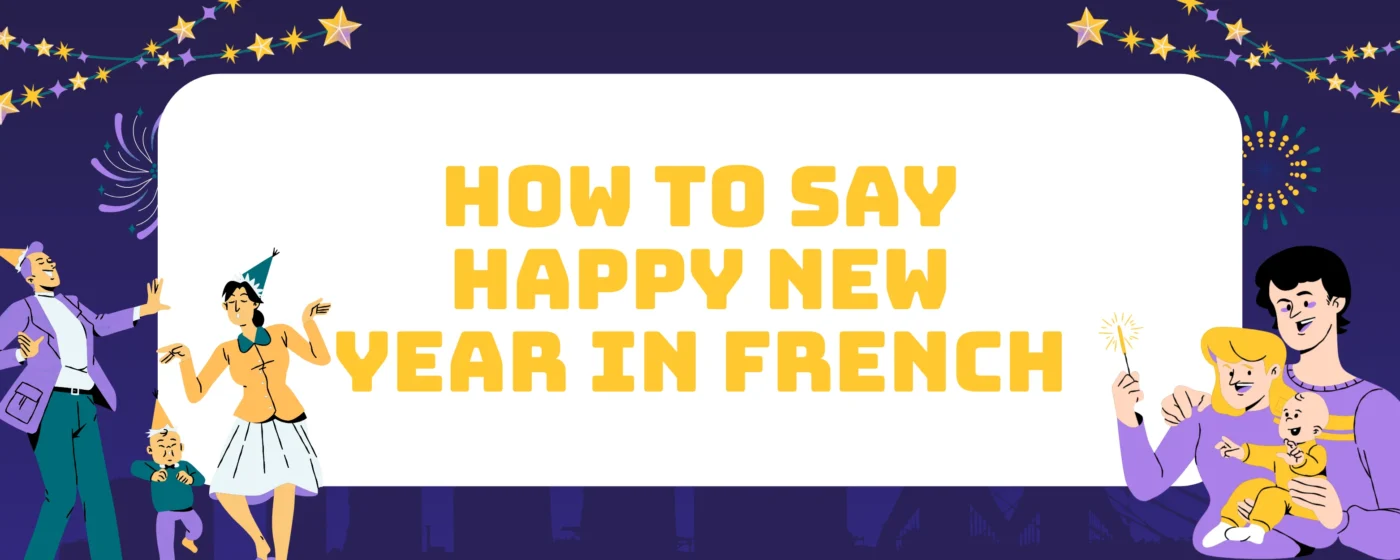Dreaming of connecting with the French? But don’t know how? Well, it starts with a warm greeting. Bien sûr, ‘Bonjour’ is a classic, but using the same greeting every time might get a bit boring after a while, don’t you think? Worry not, we’re here with 10 different ways to say ‘Hello’, each one a perfect fit for different situations and people. Allez-y!
Key Takeaways
- Learn the different ways to say “Bonjour’ in the French language, which is used when you start a conversation with another person or people.
- Basically, bonjour is the standard, polite “hello or good day” you can use almost everywhere during the day, and in the evening you use Bonsoir, which is its evening version.
- Learn the words, Salut and Coucou are informal greetings such as “hey or hi,” best for friends, family, or kids, but not for bosses or strangers.
- Know the word Enchanté(e) is “nice to meet you” when you’re introduced to someone, and Comment allez-vous ? is the formal “how are you?” to follow it up.
- When you answer the phone, use Allô ” only for it, while Quoi de neuf ? (“what’s up?”) And slangy Wesh, wesh are very casual ways to greet close friends.
Why French Greetings Are Important?
Before we get into the different ways to say ‘Hello’, let’s understand why a warm greeting is so important to the French.
Well, French greetings are very important in French culture. They are more than just saying ‘Hello’. They show respect. While a good greeting makes a positive first impression, a poor greeting can cause misunderstandings. And we don’t want that!
Moreover, choosing the right greeting is significant in both social and professional situations. In business situations, knowing how to greet people is crucial. It shows you know how to conduct yourself professionally while staying respectful. Further, if you know how to greet people correctly, you will definitely feel more comfortable!
Now that we know what all the fuss is around greetings for the French, let’s learn something!
Bonjour (bohn-zhoor)
‘Bonjour’ is the most common and formal way to say hello in French. It literally means “good day” and can be used in both formal and informal situations during the day. It’s a polite, friendly and super simple way to wish a warm greeting to someone!
For example, you can say “Bonjour” when you enter a shop to get a croissant or greet a neighbor you encounter on your way to work!
Salut (sa-lu : the ‘t’ at the end is silent!)
‘Salut’ is the casual and friendly equivalent of “hey” in English. It’s a very informal greeting, and is best suited to use among friends and family. However, it’s not appropriate for formal situations.
For example, you can use “Salut” when you see your friend Marie walking down the street.
Want to sound more natural when parting ways in French? Explore ways to say “goodbye” in French effortlessly.
Coucou (koo-koo)
We all have done the peek-a-boo sometime with our friends, haven’t we? Or maybe with a child in our family? Well, ‘coucou’ is the French equivalent of this! It’s basically a “hey there”. It’s an endearing and playful way to say hello. But, remember that it’s only to be used with your super close people (only the inner circle, as one might say), or children!
For example, “Coucou” is best used to greet a bestie you haven’t seen in ages!
Bonsoir (bon-swahr)
‘Bonsoir’ is the appropriate greeting to use in the evening in French. It literally translates to “good evening”. It’s generally considered a more formal greeting as compared to the others that we’ve discussed until now.
For example, you can say “Bonsoir” to the host of an evening event you attend!
Rebonjour (ruh-bohn-zhoor)
‘Rebonjour’ literally translates to “hello again”. It is used exactly what you’re thinking for – greeting someone again on the same day. It’s a friendly way to greet someone you know, without sounding all formal!
For example, you can say “Bonjour” to your neighbour when you meet him during your morning walk, and “Rebonjour” when you encounter him again on your way out in the evening! How convenient.
Enchanté(e) (ahn-shahn-tay)
Remember how you say “It’s a pleasure to make your acquaintance” in English when you meet someone formally, in a professional setting. Simply, it translates to “Nice to meet you”. You can use it to sound polite and respectful in a formal setting.
For example, you can use “Enchanté” when representing your company to a potential client for the first time or even when meeting your partner’s parents for the first time to make a good impression!
Vocab Causing Trouble? Let’s Fix That!
Join our classes and let our teachers guide you to build a vocabulary that sticks!
Comment allez-vous? (kom-mahn-tah-lay-voo)
This is the holy grail of asking about how someone has been, in French. ‘Comment allez-vous?’ translates to “how’ve you been?” in English. It’s a polished and somewhat formal manner of interacting with someone you don’t know very well or want to seem professional and respectful towards.
For example, “Comment allez-vous?” can be your go-to in business meetings, job interviews, or when addressing clients or superiors.
Allô (a-lo)
Wondering how you greet someone over the phone? Well, ‘Allô’ is the conventional French phone greeting you use when answering or making a call. It’s like saying “hello?” on the phone in English, with a slightly rising tone at the end, as if you’re asking a question.
For example, you can use “Allô” when calling up a friend to converse about something.
Quoi de neuf? (kwa-duh-nuf)
‘Quoi de neuf’ is an informal way to say “hello” to a friend. It literally translates to “what’s up”. Think of it this way – ‘quoi de neuf’ is sort of a combination of “salut” and “comment allez-vous?”, but in a more casual way.
For example, you can use “quoi de neuf” when you meet your friends in the university on the way to class.
Wesh, wesh (wesh wesh)
Remember comment allez-vous? Well, this is a slang version of the same! ‘Wesh, wesh’ originated with French rappers using it in their songs, and is now best used as a French version of “yo”. Before you resort to the allure of using this super casual greeting, remember that it’s not appropriate for formal settings or situations with elders present.
For example, you can use “wesh, wesh” in a casual text message to a friend to start the conversation.
Politeness is key in French culture—learn the right expressions with our guide on how to say “please” in French.
Frequently Asked Questions
1. What are some common French greetings used online or in text messages?
Ans: Cc: This is short for “coucou” and is used in online chats and text messages.
2. Is it true that French people kiss each other on the cheek as a greeting?
Ans: Yes, but it’s not always the case! Cheek kissing, or “la bise”, is a common greeting in France. What’s important to remember about cheek kisses is that they’re usually reserved for friends and family, so be careful to not use them in any formal situations!





